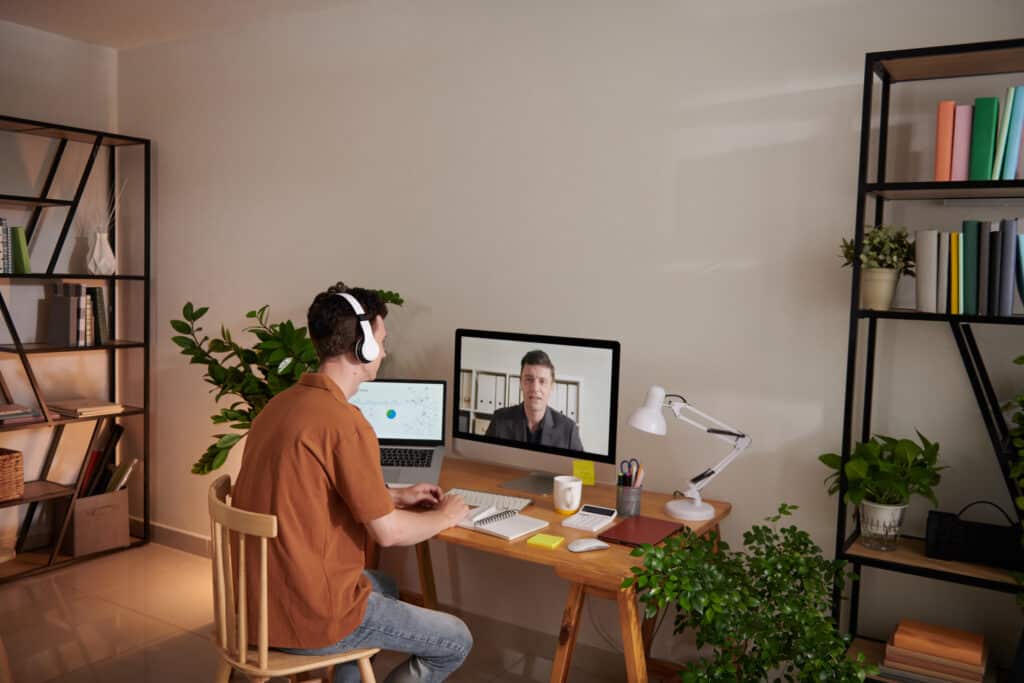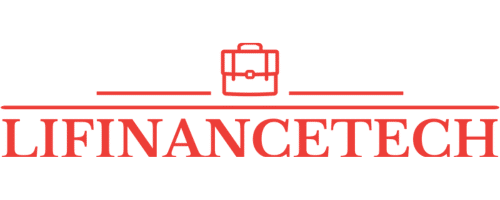
Remote work has become an increasingly prevalent practice, with surprising effects on productivity, engagement, and the environment.
Studies have shown that remote workers are as, if not more, productive and engaged than office workers. They work longer hours and experience a significant boost in performance. The benefits of remote work extend to improved work-life balance, job satisfaction, and overall wellness.
Employers also reap advantages, such as cost savings and increased productivity. Moreover, remote work has a positive environmental impact, reducing greenhouse gas emissions from transportation.
With these compelling findings, it is evident that remote work has far-reaching implications for various aspects of work and the environment.
Key Takeaways
- Remote workers are just as productive, if not more productive, compared to working in the office. Studies have shown that employee performance can increase by 22% when working from home.
- Remote work provides numerous benefits such as no commute, less distractions, better work-life balance, and increased job satisfaction. Remote workers reported being 22% happier than workers in an onsite office environment.
- The COVID-19 pandemic has accelerated the adoption of remote work, with close to 70% of full-time workers working from home. Even after the pandemic, 92% of people surveyed expect to work from home at least 1 day per week.
- The hybrid remote-office model is gaining traction, with 72% of workers preferring this flexible work arrangement. This model can lead to improved general wellness, increased employee loyalty, and better work output. Additionally, remote work has a positive impact on the environment by reducing greenhouse gas emissions and improving the transportation infrastructure.
Benefits of Remote Work
One of the benefits of remote work, as evidenced by the pre-existing knowledge, is that it provides employees with a better work-life balance, allowing them to have more time for family, exercise, and a higher quality of life. Remote workers have the advantage of eliminating the daily commute, which saves an average of 40 minutes per day. This additional time can be spent on activities that contribute to personal well-being and satisfaction.
Moreover, remote work has been found to increase productivity. A study conducted by Stanford found that employee performance was boosted by 22% when working from home. This increase in productivity can be attributed to reduced distractions and a more flexible work environment.
Therefore, remote work not only enhances work-life balance but also leads to improved productivity.
Check out the freelancing platform Toptal to hire remote workers for your next project
Future of Remote Work
The future of remote work is expected to involve a hybrid remote-office model, which offers flexibility and contributes to overall well-being. This model allows employees to split their time between working remotely and working in the office, providing them with the best of both worlds.
Research suggests that spending more time with family and friends leads to a happier disposition and better work output. Moreover, when employees are happy and satisfied, their loyalty to the company increases, which can be a key factor in employee retention.
According to Global Workplace Analytics, it is predicted that 25-30% of the workforce will work remotely by 2021. Additionally, Upwork estimates that by 2025, 1 in 4 Americans and 22% of the workforce (36.2 million Americans) will work remotely. This indicates that remote work has become a widespread practice in the modern workplace, and the trend is expected to continue in the future.
Overall, the future of remote work is promising, as it provides employees with flexibility and contributes to their overall well-being.
Access top 3% remote workers with few clicks for your next project
Find highly skilled professionals for your next project with Toptal. Quality you can trust.
Get StartedStatistics on Remote Workers
A study conducted by the Becker-Friedman Institute for Economics at the University of Chicago surveyed 10,000 employees and found that remote workers were equally as productive as their in-office counterparts. This study challenges the perception that remote work leads to decreased productivity.
In fact, the study revealed that 30% of respondents reported being more productive and engaged while working remotely. Additionally, a report by Owl Labs found that 55% of respondents work more hours remotely than at the physical office. These findings suggest that remote work can actually enhance productivity rather than hinder it.
To optimize productivity while working remotely, employees can follow remote work productivity tips such as setting boundaries, creating a dedicated workspace, and establishing a routine. By addressing the challenges of remote work and implementing effective strategies, individuals can achieve high levels of productivity in a remote work environment.
Productivity and Engagement
The study conducted by the Becker-Friedman Institute for Economics at the University of Chicago revealed that remote workers were equally as productive as their in-office counterparts, challenging the notion that remote work leads to decreased productivity. In fact, the study found that 30% of respondents reported being more productive and engaged when working from home.
This increase in efficiency can be attributed to several factors, including reduced distractions and the ability for employees to create a personalized work environment.
Additionally, remote workers often experience higher levels of motivation due to the flexibility and autonomy that comes with working from home. This study provides evidence that remote work can have a positive impact on productivity and employee engagement.
| Increased Efficiency | Employee Motivation |
| Reduced distractions | Flexibility |
| Personalized work environment | Autonomy |
| Improved work-life balance | Higher motivation |
Tap into the community of Top 3% Freelancers/Remote Workers around the world for your next job
Remote Work and Job Satisfaction
Job satisfaction is influenced by various factors, including the level of satisfaction with remote work arrangements. Research has shown that remote work can have a positive impact on job satisfaction, particularly in relation to mental health and employee collaboration.
Remote workers often experience less stress and better work-life balance, which can contribute to higher job satisfaction. Additionally, remote work allows employees to have more control over their work environment and schedule, which can lead to increased job satisfaction.
Furthermore, remote work has been found to enhance employee collaboration through the use of technology tools and virtual communication platforms. This allows for effective teamwork and knowledge sharing, ultimately contributing to job satisfaction.
Overall, the flexibility and benefits associated with remote work can significantly impact job satisfaction and the overall well-being of employees.
 Click on the banner to access the hub of Top Remote Workers
Click on the banner to access the hub of Top Remote Workers Remote Work and Work-Life Balance
Remote work has been shown to enhance the balance between professional and personal life. One of the main factors contributing to this improved work-life balance is the flexibility that remote work provides. With the ability to set their own schedules, remote workers can better manage their personal responsibilities while still meeting their professional obligations.
This flexibility allows for increased time spent with family and friends, as well as the opportunity to engage in activities that contribute to overall well-being, such as exercise and hobbies.
However, it is important to note that remote work also presents its own set of challenges. Some individuals may struggle with setting boundaries between work and personal life, leading to longer working hours and increased stress. Additionally, remote workers may face difficulties in separating their workspaces from their living spaces, which can further blur the lines between work and personal life.
Read how hiring remote workers during the tough economic time gives you an upper edge- SURVIVAL STRATEGIES: WHY TO HIRE FREELANCERS DURING RECESSION
Nevertheless, with proper time management and self-discipline, remote work can provide a more balanced and fulfilling lifestyle.
Remote Work and Cost Savings
Cost savings associated with remote work include reduced expenses for commuting, office space, and daily necessities, resulting in significant financial benefits for both employees and employers.
Remote work eliminates the need for daily commuting, allowing employees to save on transportation costs, such as fuel, parking, and car maintenance.
Additionally, remote workers can save on expenses related to office spaces, as they do not require physical workstations. This reduction in office space costs can lead to substantial savings for employers.
Moreover, remote work provides employees with more time and flexibility, allowing them to prioritize their well-being and reduce stress. Research has shown that remote workers experience higher job satisfaction, a better work-life balance, and decreased levels of stress compared to those working in traditional office environments.
Hybrid Working Model
The hybrid working model, which combines in-office and remote work, has gained traction in recent years due to its flexibility and potential for improving overall employee well-being. This model allows employees to have a balance between office-based and remote work, giving them the freedom to choose the environment that suits them best.
Research has shown that remote work can have a positive impact on employee well-being, as it reduces commuting time and provides more flexibility in managing personal and professional responsibilities. Additionally, remote work can also contribute to a healthier company culture by fostering trust, autonomy, and work-life balance.
By offering a hybrid working model, companies can cater to the diverse needs and preferences of their employees, resulting in increased job satisfaction and loyalty.
Employee Retention and Loyalty
Employee retention and loyalty can be significantly influenced by implementing a hybrid working model that provides employees with the flexibility and work-life balance they desire. This model allows employees to work from both the office and home, giving them more control over their work environment.
Research has shown that employees who have the option to work remotely are more motivated and engaged, leading to higher levels of job satisfaction and loyalty to the company. Additionally, the hybrid model addresses some of the challenges that can arise from remote work, such as feelings of isolation and decreased communication.
By allowing employees to have a mix of in-person and remote work, organizations can create a more inclusive and supportive work environment that promotes employee retention and loyalty.
Environmental Impact of Remote Work
The remote work trend has the potential to significantly reduce greenhouse gas emissions by decreasing the number of vehicles on the road. This reduction in carbon footprint can have a positive impact on the environment and the transportation infrastructure.
By working from home, remote workers eliminate the need for commuting, resulting in fewer cars on the road and decreased emissions. This shift towards remote work can contribute to a more sustainable future and help combat climate change.
By embracing remote work and utilizing public transportation when necessary, individuals and organizations can play a part in reducing their carbon footprint and mitigating the effects of climate change.
Frequently Asked Questions (FAQ)
How has the COVID-19 pandemic affected the number of remote workers globally?
The Covid-19 pandemic has significantly increased the global remote workforce. Many companies were forced to implement remote work policies to comply with social distancing measures, resulting in a surge in the number of people working remotely worldwide.
What are the main benefits of a hybrid working model?
The main benefits of a hybrid working model include flexible schedules and increased work-life balance. This model allows employees to have a combination of working from the office and working remotely, providing them with more control over their work arrangements.
How does remote work impact employee retention and loyalty?
Remote work positively impacts employee retention and loyalty by providing better work-life balance and increased job satisfaction. Employees who have the flexibility to work remotely are happier and more satisfied, leading to a stronger commitment to the company.
How does remote work contribute to cost savings for employers and employees?
Remote work contributes to cost savings for employers by reducing office space costs, increasing productivity, reducing absenteeism, and lowering turnover. Employees benefit from financial savings on commuting, food, fuel, parking, and car expenses.
What is the projected growth of remote work in the future?
Projected expansion of remote work is significant. Global Workplace Analytics predicts 25-30% of the workforce will work remotely by 2021, while Upwork estimates that 22% of the workforce (36.2 million Americans) will work remotely by 2025. Remote work is becoming increasingly widespread.
Concluding Remark
In conclusion, the impact of remote work on productivity, engagement, and the environment is undeniable and transformative. As the modern workforce evolves, it’s clear that remote work not only maintains, but often enhances, productivity while affording employees the freedom to live more balanced, fulfilling lives. The hybrid remote-office model is gaining ground, promising increased employee loyalty and well-being, and the environmental benefits of reducing greenhouse gas emissions are evident.
The world of work is changing, and remote work is at the forefront of this transformation, promising a future where individuals can thrive in both their professional and personal lives, all while making a positive contribution to the planet.




